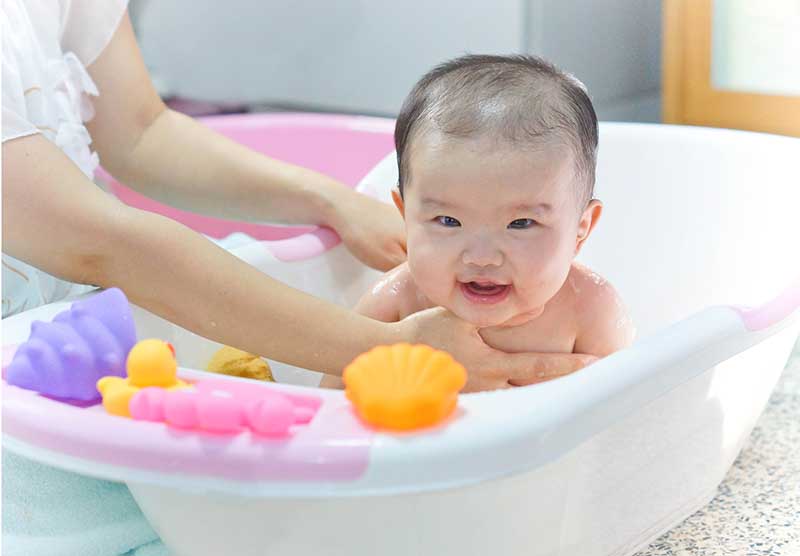Families For Life | Lies: Why Children Lie and What To Do-Young Children

Most children tell lies at some point, but it can be a surprise the first time you hear your child lying. Learning how to lie is part of a child’s development – but so is learning to tell the truth. Here’s how to give your child the message that honesty is important.
Why do children lie?
Children might lie to:
cover something up so they don’t get into trouble
see how you’ll respond when you hear them lie
make their story more exciting or make themselves sound better
get attention, even when they know you know the truth
get something they want – for example, saying to grandma, ‘Mum lets me have lollies before dinner’.
When do children start lying?
Children can learn to tell lies from an early age, usually by around three years of age. This is when your child starts to realise that you aren’t a mind reader, so he can say things that aren’t true without you always knowing.
Children lie more at 4-6 years. Your child might get better at telling lies by matching her facial expressions and the tone of her voice to what she’s saying. If you ask her to explain what she’s saying, she’ll usually own up.
When children reach school-age, they might lie more often and can be better at lying. The lies also get more complicated, because your child has more words and is better at understanding how other people think.
By eight years, children can lie successfully without getting caught out.
Encouraging children to tell the truth
Once children grow old enough to understand the difference between true and not true, it’s good to encourage and support them in telling the truth.
You can do this by emphasising the importance of honesty in your family and praising your child for honesty – even if it sometimes takes you a while to get it.
You can also send messages about honesty by telling your child that you don’t like it when he lies to you. For example, you could try saying something like, ‘When you don’t tell me the truth, I feel sad and disappointed’.
Tips for encouraging honesty
Here are some tips for encouraging your child to be honest and tell the truth:
If your child is making up a story about something, you can respond by saying something like, ‘That’s a great story – we could make it into a book’. This encourages your child’s imagination without encouraging lying.
Help your child avoid situations where she feels she needs to lie. For example, if your child has spilled some milk and you ask her whether she did it, she might feel tempted to lie. To avoid this situation you could just say, ‘I see there’s been an accident with the milk. Let’s clean it up’.
‘Big’ stories that involve bragging can be a child’s way of getting admiration or respect from others. If this is happening often with your child, try praising your child more – for example, when he learns something new. This can help to boost your child’s self-esteem.
Make sure that you have clear rules and consequences about what’s acceptable behaviour in your family.
When your child owns up to doing something wrong, praise her for being honest. Say things like, ‘I’m really glad you told me the truth. I like it when you’re honest’. This sends the message that you won’t get upset if your child owns up to something.
Try reading books or telling stories that highlight the importance of honesty. For example, ‘The Boy who Cried Wolf’ gives a good example of how lying can work against you.
Children like to make things up. They exaggerate stories to give them a bit more ‘flavour’. Pretending and imagining are important to your child’s development, and it’s good to encourage this kind of play. ‘Tall tales’ don’t need to be treated as lies, especially for children under four years.
How to handle lying and deliberate lies
If your child tells a deliberate lie, the first step is to let him know that lying isn’t OK. Explain why and let your child know that you might not be able to trust him in future.
The next step is to use appropriate consequences. For example, if your child drew on the wall and then lied about it, get her to help you clean it up.
It’s important to deal separately with the lying and the behaviour that led to it. If your child is lying to get your attention, consider more positive ways you could give him attention. If he lied to get something he wanted – for example, a new book – consider a rewards system that lets him earn it.
You might also need to look at changing your child’s environment to help her avoid situations where she feels the need to lie.
Tips for handling lies and lying
Make a joke, or exaggerate your child’s lie. For example, a young child might explain a broken toy by saying, ‘My teddy bear broke it’. You could say something silly like, ‘I wonder why teddy did that?’ Keep the joke going until your child owns up. This way, you uncover the lie and teach a lesson without any need for discipline or conflict.
If your child keeps sticking to a deliberate lie, you might want to reinforce the idea that lying isn’t OK by using an appropriate discipline strategy.
Try to avoid telling your child that he’s a ‘liar’. This label won’t be good for his self-esteem and might lead to even more lying. That is, if your child believes he’s a liar, he might as well as keep lying. It’s more helpful to talk about your child’s behaviour.
What to do when older children lie
As children get older, lies can become a habit.
If your child is lying a lot, it’s a good idea to talk calmly about the issue with your child. Try making a time to talk, and then tell your child how her lying makes you feel, how it affects your relationship with her, and what it might be like if family and friends stop trusting her.
Always tell your child when you know for sure that he isn’t telling the truth. Your child needs to know that honesty is important to you. But try to avoid asking him all the time if he’s telling the truth.
It might seem like no matter what you do, your child keeps lying. But if you keep praising your child for telling the truth and also using consequences for lying, your child is less likely to lie as she gets older. It might take until your child is seven years or older.
It might also help to know that children of all ages who have good communication with their parents and talk with them about what they’re doing are less likely to engage in antisocial behaviour.
Some children, particularly those over seven, might lie frequently as part of a larger pattern of more serious, negative or even illegal behaviour like stealing, lighting fires or hurting animals. If your child is involved in this kind of behaviour, think about getting professional help from a school counsellor or psychologist.
Lying about abuse and other serious issues
Sometimes children lie to keep a secret or to protect someone. For example, a child who has been abused by an adult will often lie to protect that adult. Often the child fears that he’ll be punished if he tells.
Here’s what to do if you suspect your child is lying about something serious:
Give your child a lot of reassurance that she’ll will be safe if she tells the truth.
Do your best to convince your child that you can make things better.
If you have concerns about your child’s safety or wellbeing, seek professional help as soon as possible. Your General Practitioner (GP) or school counsellor can give you advice on who to contact.
White lies
A ‘white lie’ is a harmless lie told with good intention – usually to protect the feelings of another person.
For example, before your child gets a gift, you might encourage him to say he likes it. In this situation, some children will still tell the truth (‘I don’t like it!’) even if they understand that this might hurt somebody’s feelings. This is probably because children of this age and stage are more focused on moral development, which encourages truth-telling.
As children get to primary-school age, they get better at telling white lies. By adolescence, children regularly tell white lies to protect their friends’ feelings.
Parents telling white lies
Telling your child a white lie can be harmless. Some white lies can help protect a child’s innocence, promote creative development or teach them important social skills.
For example, you might tell your child that your cuddles have magic powers that will fix your child when she’s hurt herself. Some parents like to play games like finding fairies in the garden.
Although they’re harmless, white lies shouldn’t be used too often. The distinction between a white lie and a true lie – one designed to avoid punishment, for example – might not be as clear to children. Children who are used to hearing lies are more likely to tell lies themselves.
We’re often tempted to tell children white lies to manage behaviour. For example, you might say, ‘I can’t buy you those lollies because I didn’t bring any money’. This might work once, but it can also backfire if you get caught out (with a purse or wallet full of money) and lead to arguments and lack of trust.
It’s more effective to manage children’s behaviour in honest and productive ways. See our tips on encouraging good behaviour for more ideas.
© raisingchildren.net.au, translated and adapted with permission
Explore more

DID YOU KNOW?
Bath time is a good way to soothe your baby but it can also be a fantastic learning opportunity for your child. Learn how you can engage him during bath time.
READ MORE